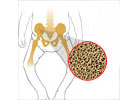
‘Behavioral and emotional problems of low birth weight children may be solved by providing iron supplements.’
Tweet it Now
Research up until now has shown that those babies given iron supplements had a lower risk of suffering from iron deficiency or iron deficiency anemia by the time they were six months old. When the participants were tested again when they were 3 and a half years old, the ones in the supplement group had fewer behavioral problems than those who went without extra iron.In this study, 207 of the participants from the initial investigation were tested at the age of seven. Berglund and his fellow researchers wanted to see if the early iron intervention influenced the children’s cognitive and neurobehavioral abilities. The Wechsler Intelligence Scale for Children was used to assess the children’s cognitive abilities. Their parents completed two standardized questionnaires about their children’s behavior.
No major differences were found in the intelligence scores of the children in the two separate test groups. The magnitude of the intervention group to show externalizing problems was however significantly reduced compared to that of the children in the other. They had lower levels of aggressive and rule-breaking behavior, and did not suffer as many thought problems. The thought problems in question were recently shown to be the best independent predictor of autism spectrum disorders. This suggests that the behavioural and emotional profiles of low birth weight children who did not receive iron supplements include different symptoms of subclinical neurodevelopmental problems.
"Our findings suggest that iron supplementation may have long-lasting effects on behavioural functions in children born of a low birth weight," says Berglund. "This clinically important benefit from early iron supplementation gives further support to recommend iron supplementation of all low birth weight children, including those with marginally low birth weight."
On the population level this finding is important, since marginally low birth weight infants represent a relatively large proportion of all births. Up to five percent of infants born in high income countries and fifteen percent of those in low income countries are defined as such.
Advertisement













